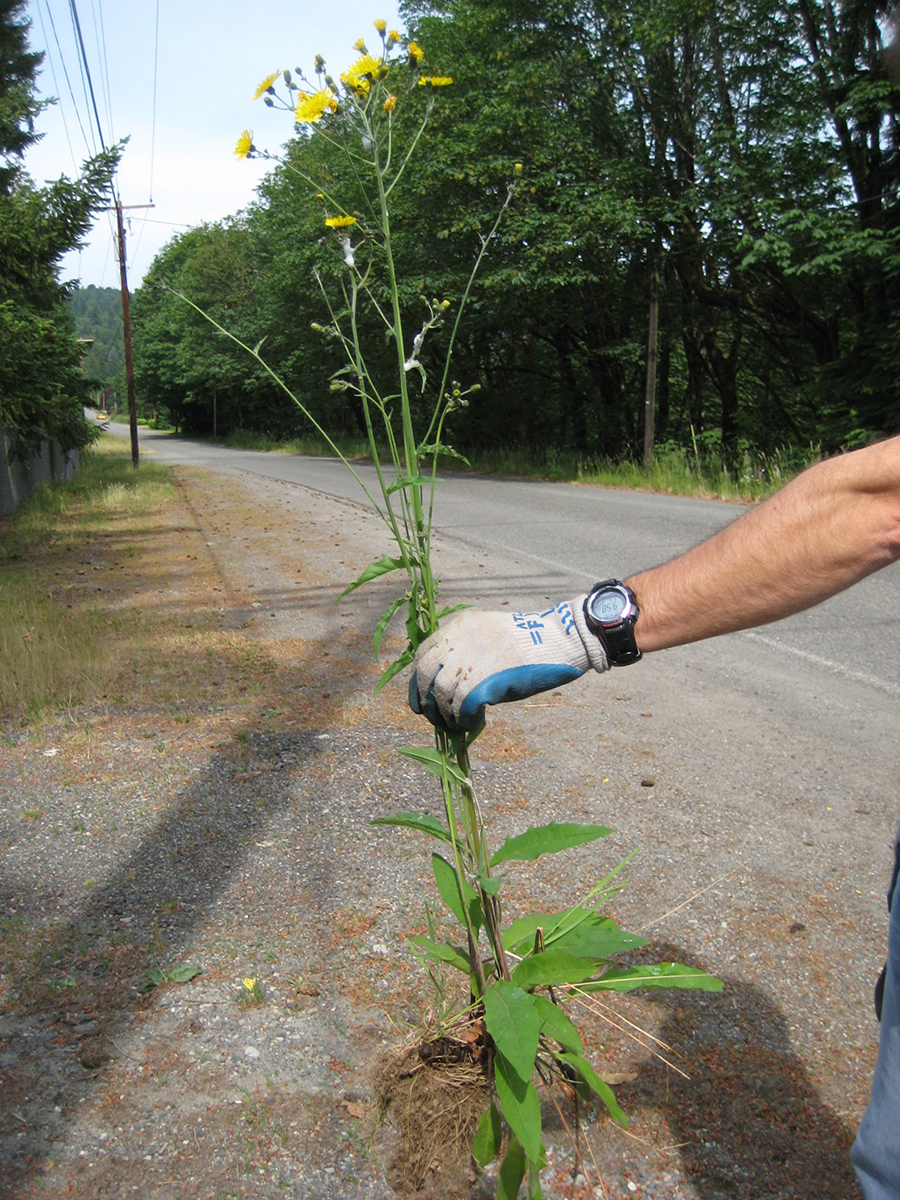Wall hawkweed subgenus identification and control
Hieracium, subgenus Hieracium, Asteraceae Family

Non-native hawkweeds are perennial, dandelion-like plants with clusters of small dandelion-like flowerheads and fibrous roots. Stems exude a milky sap when broken and plants have white and/or black hairs on the stems, leaves and flowerheads. The wall group of hawkweeds (subgenus Hieracium) are distinguished by leaves that are often coarsely toothed or lobed, flowerheads that are generally in loose, branched clusters, and stems that are somewhat leafy.
Nonnative hawkweed species and hybrids are invasive, spread readily, and have negative impacts to rangeland and other habitats, especially in mid to upper elevations and in areas with low fertility soils. Nonnative hawkweed species can be difficult to tell apart, especially if they hybridize.
On the state noxious weed list, the nonnative yellow flowered hawkweeds are grouped into two Class B noxious weed listings by subgenus Pilosella (meadow group) and subgenus Hieracium (wall group). Nonnative hawkweeds in subgenus Hieracium include: European (Hieracium sabaudum), smooth (H. laevigatum), common (H. lachenalii), polar (H. atratum), spotted (H. maculatum), and wall (H. murorum). All species in this group are Class B noxious weeds that are not designated by the State Noxious Weed Board for required control in King County. European hawkweed is selected by the King County Noxious Weed Board for required control but the rest are not and control is recommended but not required. Because of the difficulty distinguishing hawkweeds and other plants with similar yellow dandelion-like flowers, we recommend contacting the noxious weed program for a positive identification before removing.
Report noxious weeds in King County, Washington
- Please notify us through our online infestation form
Locate noxious weeds in King County, Washington
- Use our interactive noxious weed map
Related information
Related agencies
Program offices are located at 201 S. Jackson St., Suite 600, Seattle, WA 98104. To contact staff, see the Noxious Weed Control Program Directory, send an email, or call 206-477-WEED (206-477-9333).

 Translate
Translate